The growing list of allies Trump has praised then cast aside
He has been known to insult some of his closest political allies.
— -- President Donald Trump has built an image as a tough-talking New Yorker whose pugnaciousness, it seems, can extend to some people he has even considered allies.
The latest public slight against a close ally popped up this morning, when he apparently challenged Secretary of State Rex Tillerson to an IQ faceoff in light of allegations that Tillerson called the president a “moron,” which the State Department has denied.
White House press secretary Sarah Sanders has since said the IQ test comment, which was reported in an interview with Forbes, was a joke, but it’s still the latest example of Trump’s belittling those closest to him after a perceived slight.
Here is a rundown of some of Trump’s allies, or former allies, whom he has taken to task.
Sen. Bob Corker, R-Tenn.
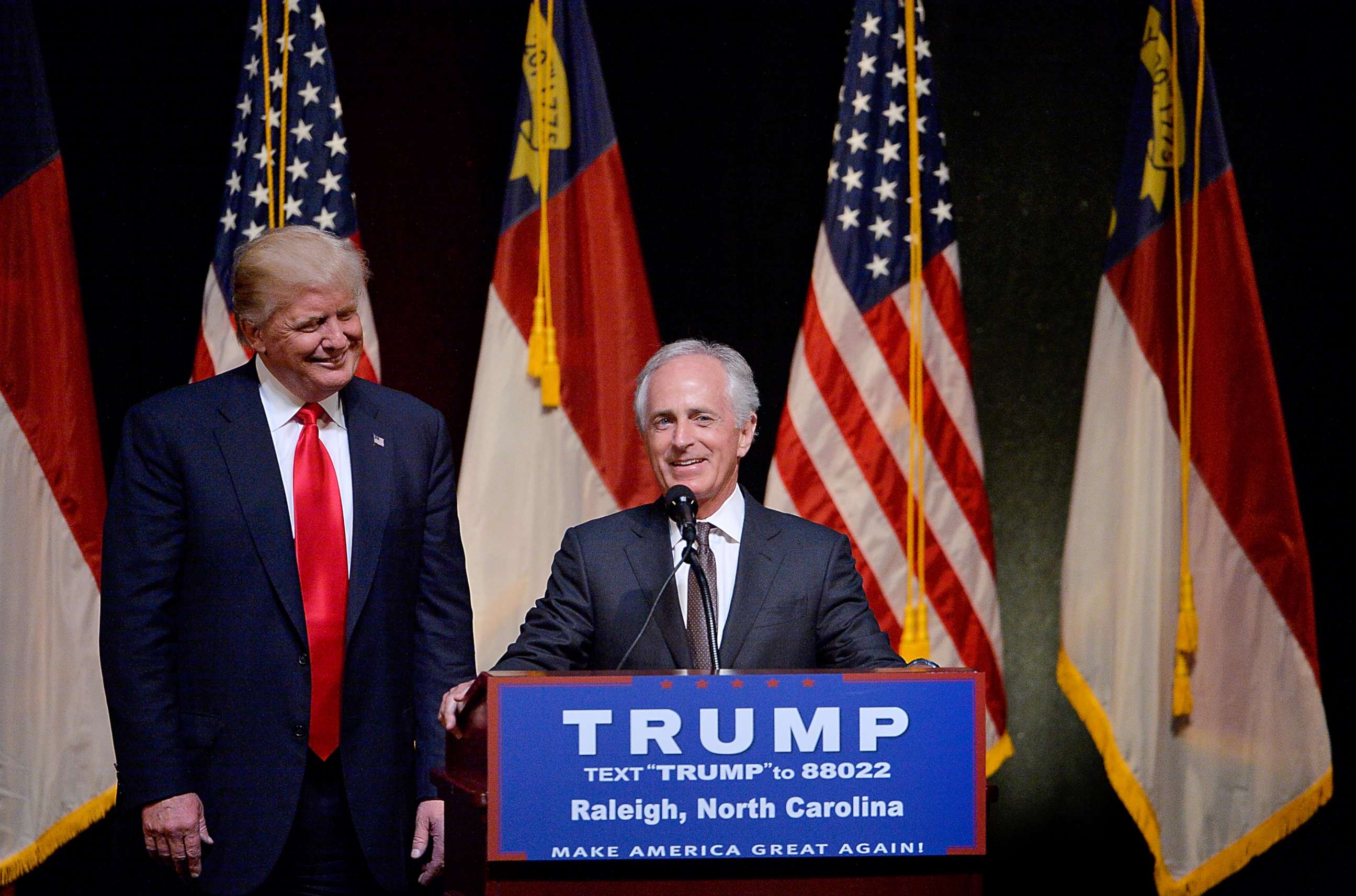
Corker rallied with Trump during the presidential campaign and endorsed him for the GOP nomination before the 2016 Republican National Convention. They shared their mutual public admiration for one another at a North Carolina rally, where Corker told the crowd about the respect Trump has built within the Trump Organization and Trump’s calling Corker "a great friend of mine."
Their public musings about each other soured over the course of the next year, however, with Corker’s saying that Trump's reaction to the Charlottesville, Virginia, protests were "helping inspire divisions." He later praised Trump's address to the United Nations in September, however.
But things took a turn Oct. 5 when Corker said Tillerson, Secretary of Defense James Mattis and chief of staff John Kelly "are those people that help separate our country from chaos."
Trump struck back on Twitter three days later, writing, "Senator Bob Corker "begged" me to endorse him for re-election in Tennessee. I said "NO" and he dropped out (said he could not win without.....my endorsement). He also wanted to be Secretary of State, I said "NO THANKS." He is also largely responsible for the horrendous Iran Deal! ...Hence, I would fully expect Corker to be a negative voice and stand in the way of our great agenda. Didn't have the guts to run!"
Corker fought back, tweeting, "It's a shame the White House has become an adult day care center. Someone obviously missed their shift this morning."
The battle continues as Trump tweeted a new nickname for Corker in his latest response this morning: "The Failing @nytimes set Liddle' Bob Corker up by recording his conversation. Was made to sound a fool, and that's what I am dealing with!"
Attorney General Jeff Sessions
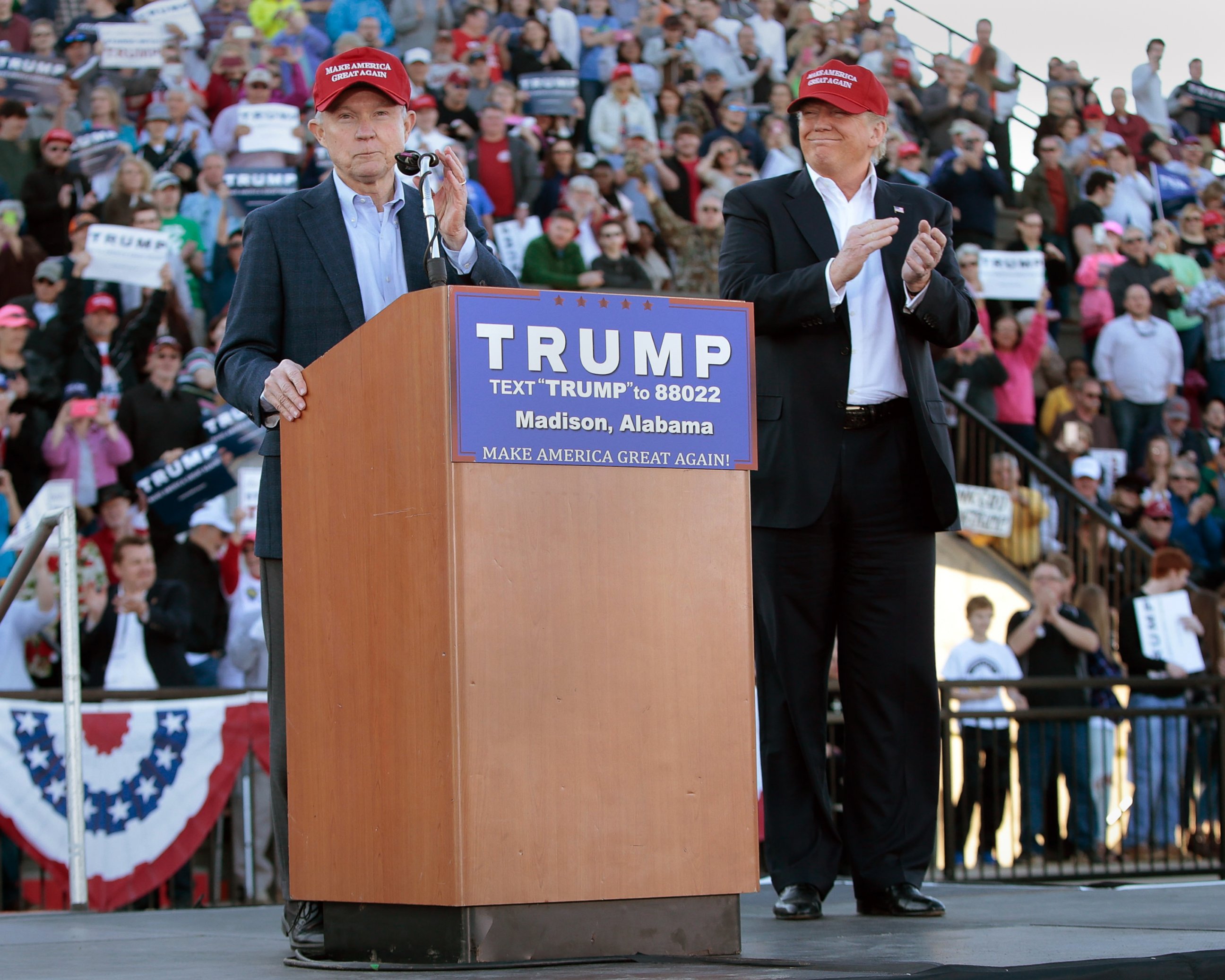
Trump counted his attorney general, Jeff Sessions, among his earliest supporters and the first sitting senator to endorse him.
On election night, Trump thanked Sessions, who was a senator from Alabama, for being the "first major, major politician" to support his campaign, and Trump praised him as being "highly respected."
But in the wake of Sessions’ recusing himself from the Russia investigation in early-March 2017 – a cloud that has hung over the Trump administration since its inception – that relationship started to fray.
In early June, Trump criticized the Justice Department for issuing a “watered down, politically correct version” of the proposed travel ban, and sources told ABC News that Sessions offered to resign as a result of the president’s frustration with him.
In mid-July, Trump told The New York Times that Sessions “should have never recused himself” from the investigation into possible Russian interference and possible collusion in the 2016 campaign and that if Sessions had told him that he planned to do so, Trump “would have picked someone else.”
Tweets followed in which Trump called Sessions “beleaguered” and described the “VERY weak position” he had taken “on Hillary Clinton crimes.”
Ben Carson, Secretary of Housing and Urban Development
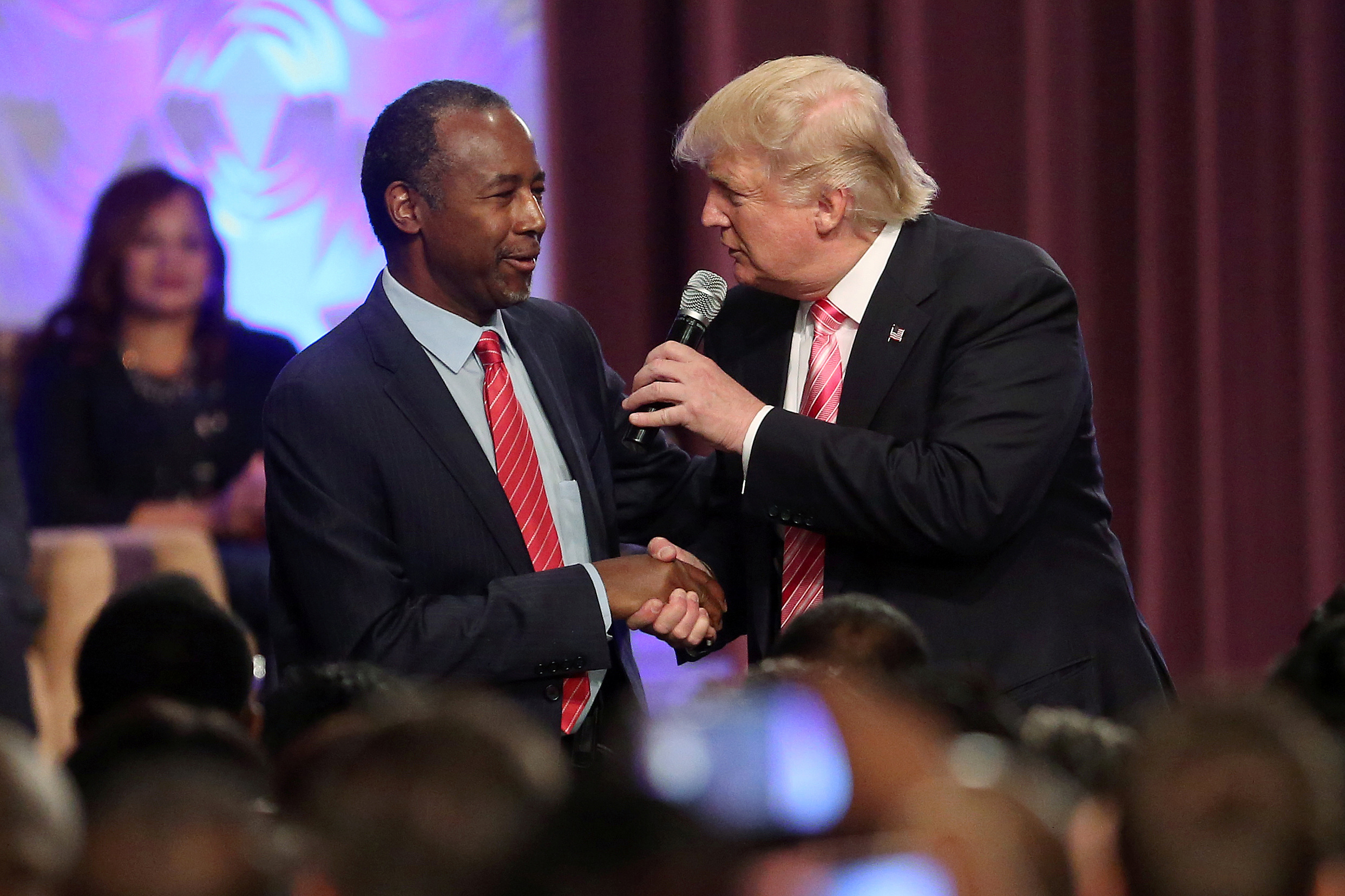
Before Carson dropped out of the race and endorsed Trump, the real estate mogul was critical of the retired neurosurgeon.
At one point, Trump called the people of Iowa "stupid" for believing stories that Carson included in his book about his childhood, including one in which he claimed to have stabbed a friend with a knife but was thwarted when the knife broke.
Trump also referenced another portion of Carson's book.
“He actually said ‘pathological temper,’ and then he defined it as disease. If you’re pathological, there’s no cure for that, folks. If you’re a child molester, a sick puppy, there’s no cure for that," Trump said at one point during the campaign.
They have clearly mended fences, as Trump picked Carson to lead the Department of Housing and Urban Development.
New Jersey Gov. Chris Christie
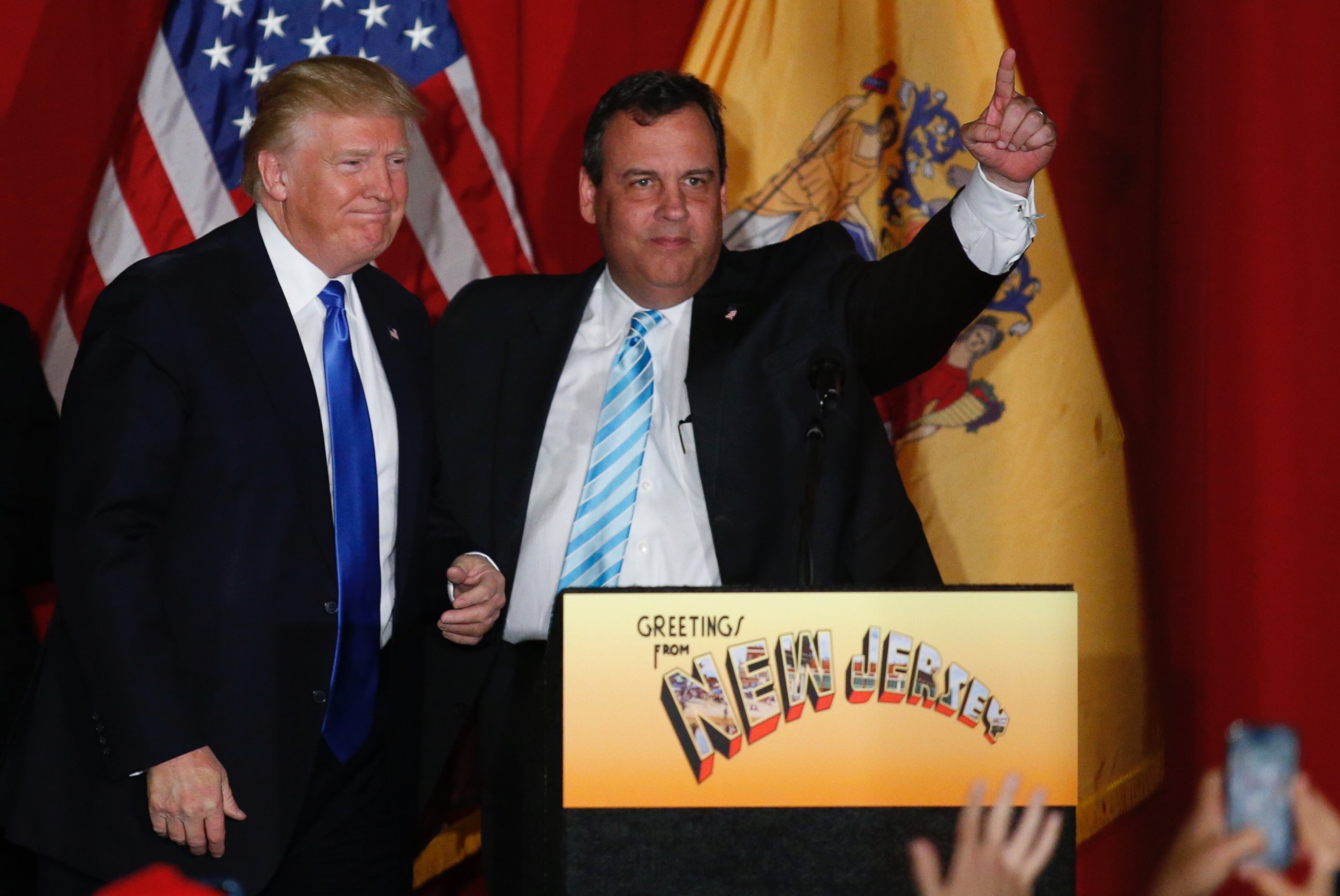
During the 2012 campaign, back when Trump was supporting Mitt Romney's run, Trump regularly praised Christie on Twitter.
Before Christie's speech at the Republican National Convention, Trump wrote on Twitter that Christie "will deliver a strong message." Earlier that year, he tweeted that Romney should consider Christie for his vice presidential pick.
He also retweeted someone else's tweet that stated the former President Bill Clinton and Christie first met at Trump's wedding, writing "TRUE" at the end of his tweet.
In the next election cycle, when Trump and Christie were both running, they traded barbs, including one point when Trump posted the following in a November 2015 tweet: “How is Chris Christie running the state of NJ, which is deeply troubled, when he is spending all of his time in NH? New Jerseyans not happy!”
After Christie dropped out and backed Trump, the two became friends again, with Christie even being widely viewed as having been in the running for a possible Cabinet position, though no such appointment ended up happening.
Former Massachusetts Gov. Mitt Romney
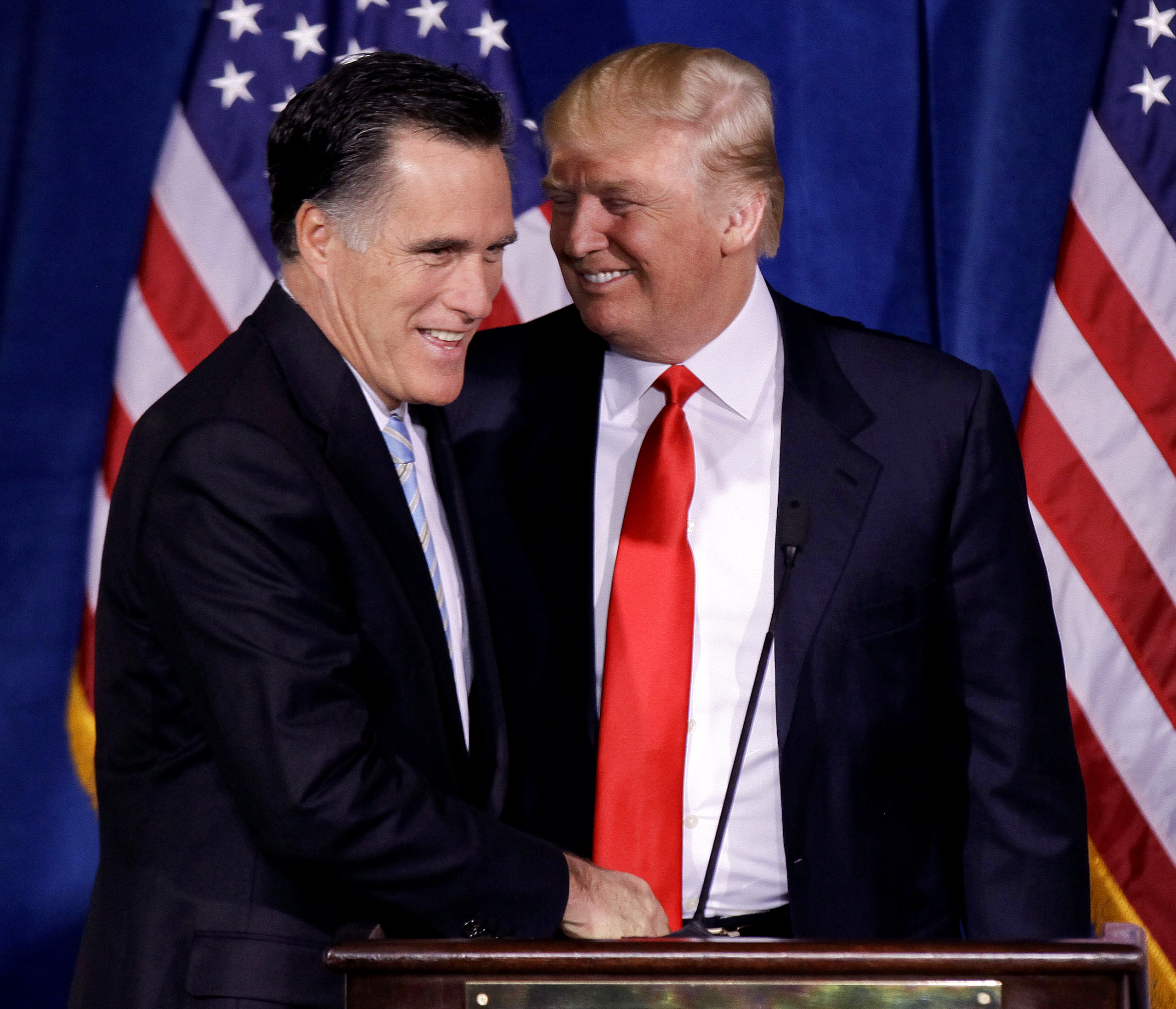
Trump endorsed Romney in 2012, but then when it was Trump's turn to run 2016, Romney became one of Trump's most vocal critics, and at one point held a news conference urging delegates in upcoming primaries to do whatever they could to prevent Trump from becoming the party's nominee.
Trump retaliated by slamming Romney, writing various tweets wherein he said that Romney "is a mixed up man who doesn't have a clue" and a "disaster candidate" in different March 2016 tweets.
They appeared to reach a truce after Trump won, and Romney was publicly considered to fill the role of Trump's secretary of state, but then was not chosen.
Romney spoke out against Trump again after the Charlottesville protests, calling on Trump to apologize and address the fallout from his statements about the violence, warning that a failure to act could lead to "an unraveling of our national fabric."



